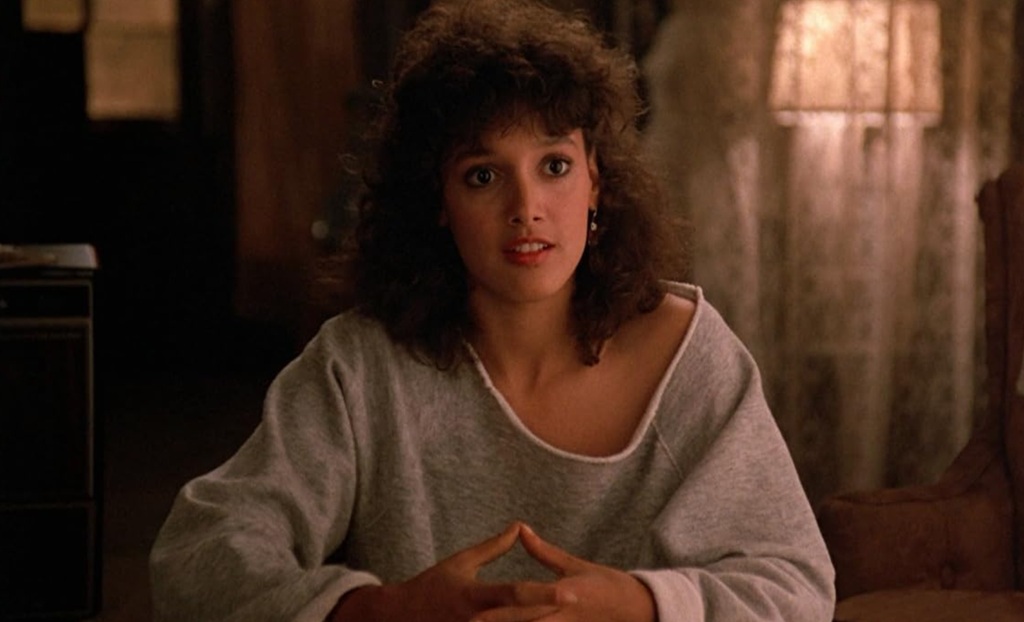Flashdance: When David Cronenberg Was Chosen to Direct the Film (And Refused)
David Cronenberg, the renowned director known for films like “The Dead Zone,” “The Fly,” “A History of Violence,” and “Eastern Promises,” is celebrated for his unique touch. Whether it’s violent fight scenes or science fiction plots, Cronenberg’s films always have a dark side that we don’t easily associate with stories about aspiring dancers.
However, the visionary Canadian director was approached to direct “Flashdance,” the 1983 romantic drama centered around music and starring Jennifer Beals. The film, eventually directed by Adrian Lyne, was nominated for four Oscars, winning the Best Original Song award.
But what would the film have been like if it had been made by David Cronenberg? Even he doesn’t think it would have fared as well. Speaking at the Marrakech Film Festival, he explained:
“You will be surprised [that producers Don Simpson and Jerry Bruckheimer] were completely convinced I was the right person to direct ‘Flashdance.’ Really, I don’t know why [they] thought I should do it, and in the end, I had to refuse – I told them: ‘I will destroy your film if I direct it!'”
In the end, “Flashdance” went to Adrian Lyne, becoming the third highest-grossing film of 1983. In the same year, David Cronenberg brought two masterpieces to the big screen: “The Dead Zone” and “Videodrome,” solidifying his role as a pioneer of a genre that explores bodily horror with an intellectual touch, and introducing a new adjective to the film lexicon: “Cronenbergian.”
“My works have been attacked for being horrible, decadent, and depraved,” he said with a smile. “All good things.”
Cronenberg demonstrated great critical sense by choosing to pursue projects that reflected his style and rejecting those that did not. May every director have the same discernment.
Below is the trailer for “Flashdance”:
FAQs
1. Why was David Cronenberg considered to direct “Flashdance”?
Producers Don Simpson and Jerry Bruckheimer believed that David Cronenberg was the right choice to direct “Flashdance,” despite the film’s romantic and musical themes.
2. Why did David Cronenberg refuse to direct “Flashdance”?
David Cronenberg felt that his dark and unique style would not align well with the tone of “Flashdance.” He expressed concerns that his directing would not do justice to the film.
3. Who ended up directing “Flashdance”?
After David Cronenberg turned down the opportunity, Adrian Lyne took over as the director of “Flashdance,” which went on to become a commercial success.
4. What other films did David Cronenberg work on in the same year as “Flashdance”?
In the same year as “Flashdance,” David Cronenberg directed “The Dead Zone” and “Videodrome,” both of which are considered masterpieces in the genre.
5. How did David Cronenberg contribute to the film industry?
David Cronenberg is known for his exploration of bodily horror and intellectual themes in cinema, pioneering a unique style that has influenced the genre.
6. What did David Cronenberg say about his works being criticized?
David Cronenberg humorously acknowledged the criticisms of his works, stating that being considered horrible, decadent, and depraved was a positive aspect for him.
7. How did David Cronenberg handle project choices?
David Cronenberg demonstrated a keen sense of judgment by selecting projects that aligned with his style and rejecting those that did not, ensuring the integrity of his artistic vision.
8. What impact did David Cronenberg have on the film industry?
David Cronenberg’s unique approach to filmmaking and his creation of the term “Cronenbergian” have left a lasting impression on the film industry, inspiring future generations of filmmakers.
9. What were the critical and commercial receptions of “Flashdance”?
“Flashdance” received mixed reviews from critics but was a commercial success, becoming one of the top-grossing films of 1983.
10. What legacy did David Cronenberg leave in the film industry?
David Cronenberg’s refusal to direct “Flashdance” and his subsequent masterpieces solidified his reputation as a visionary filmmaker, leaving a legacy of innovation and artistic integrity in the film industry.
Conclusion
In the world of filmmaking, the choices a director makes can have a significant impact on the outcome of a project. David Cronenberg’s decision to decline directing “Flashdance” in favor of pursuing projects that aligned with his unique style showcases the importance of artistic integrity. While the film industry may have missed out on a Cronenberg-directed musical drama, his legacy as a pioneer of body horror and intellectual cinema remains intact.
Tags
David Cronenberg, Flashdance, Film Industry, Artistic Integrity

